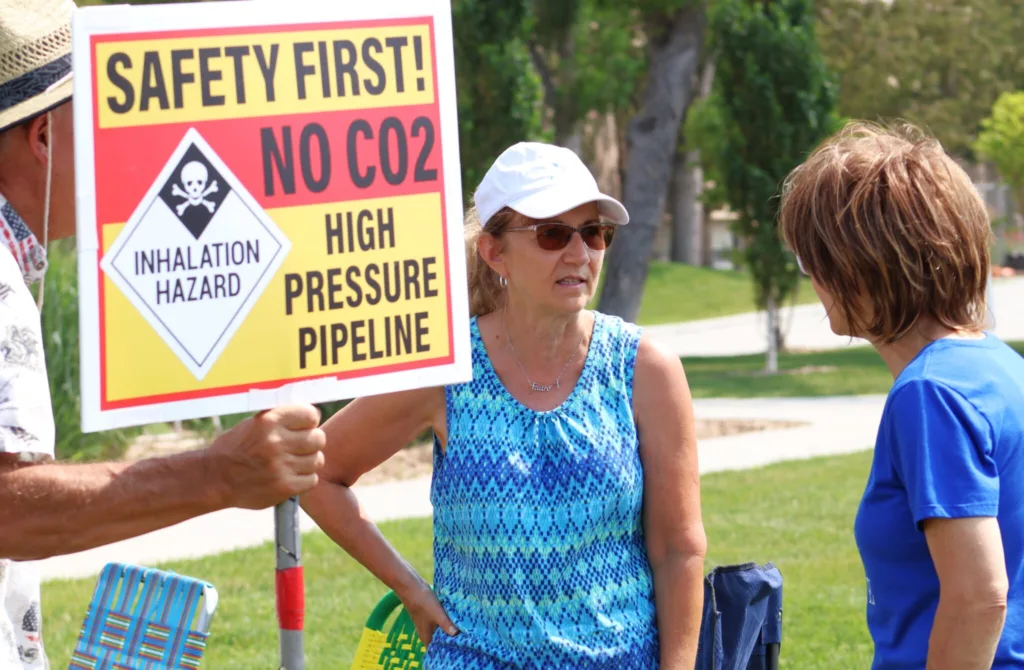

By: SD Searchlight
A coalition of groups opposing a multi-state carbon dioxide pipeline celebrated the removal of controversial language from the budget reconciliation bill passed Thursday by the U.S. House.
Last week, the groups raised alarms about a provision they said would have allowed federal regulators to approve natural gas and carbon dioxide pipelines over prohibitions in state law.
South Dakota passed a law earlier this year that bans the use of eminent domain for carbon pipelines. Eminent domain is a legal process for gaining land access from unwilling owners, in exchange for compensation determined by a judge.
Chase Jensen, a senior organizer for Dakota Rural Action in South Dakota, was among the activists who called for the provision’s removal.
“Within days of being introduced, Congress heard loud and clear that seizing federal siting authority for oil and CO2 pipelines was a nonstarter all across the nation,” Jensen said in a news release.
The groups are also calling for the repeal of a federal tax credit for carbon sequestration, but have not succeeded in getting that repeal inserted in the legislation. And they remain opposed to a “fast-track” provision in the bill that they say would allow potential gas pipeline operators to pay a fee of $10 million for expedited federal environmental reviews within a year’s time.
The proposed $9 billion, five-state Summit Carbon Solutions pipeline does not require that type of federal review, but it does need eminent domain for its proposed route. The project, which would transport ethanol-plant carbon emissions to an underground sequestration site in North Dakota, remains in limbo in South Dakota after the passage of the state’s eminent domain ban and two permit rejections by the state’s Public Utilities Commission.